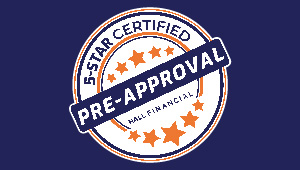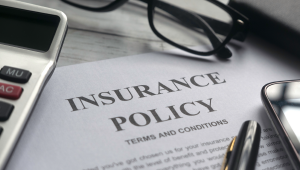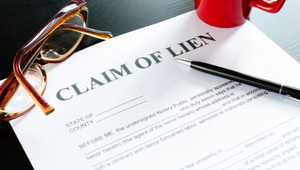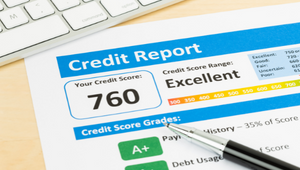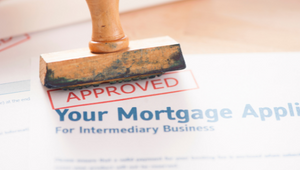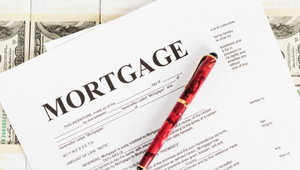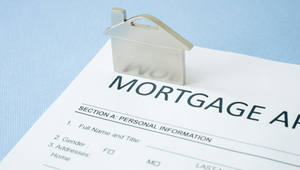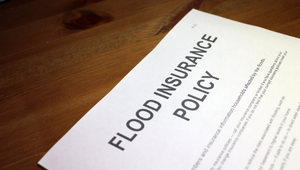
Check out these articles covering all your mortgage and financial basics. This is your all-in-one resource on key topics. After you are done browsing, Call Hall First to chat with a mortgage expert on your next steps!
We’ve compiled a list of the most common mortgage words and acronyms along with their definitions below.
Home equity is the difference between how much you owe on your mortgage and how much your home is worth.
Appraisals are important to buyers, sellers, and lenders to ensure homes are priced fairly and borrowers are given the fair market value.
As a homeowner you may see an escrow amount on your itemized monthly mortgage payments.
Closing costs are fees and expenses buyers pay in addition to the down payment to secure a loan.
Depending on the type of loan, homeowners may be required to pay mortgage insurance.
What Is Private Mortgage Insurance (PMI)?
Private Mortgage Insurance (PMI) is a type of insurance certain borrowers are required to pay.
FHA loans allow homebuyers to qualify for a home with a lower credit score and low down payments.
Four Great Benefits of an Appraisal
If homeowners are purchasing or refinancing, an appraisal holds great benefits.
A flex term gives borrowers the opportunity to customize the length of their home mortgage loan, between 8 and 30 years, with a fixed interest rate.
Conventional loans are a common loan type available to homebuyers. They come in two categories: conforming and nonconforming.
Home Appraisal vs Home Inspection
A home appraisal and home inspection may seem similar since they evaluate homes; however, they are vastly different in their evaluation process.
An interest rate is a percentage of the overall loan you borrow converted into an annual amount you are charged for borrowing that loan.
A jumbo loan is a type of non-conforming conventional loan that allows buyers to purchase homes above conforming loan limits.
A down payment is money paid upfront as an initial installment on a purchase made with credit. Down payments commonly range from 3% to 20%.
A credit score predicts the likelihood of you making payments on time and is primarily utilized to predict the financial habits of a borrower.
FHA and Conventional loan are two common types of mortgages that allow borrowers in a wide range of financial situations to become homeowners.
What is a VA (Veterans Affair) Loans?
VA loans (established by the U.S Department of Veterans Affairs) are available to military members, veterans, and qualifying surviving spouses.
What is a Credit Utilization Ratio?
When you open a credit card, you are given a limit. The credit utilization ratio shows how much of the credit limit you are currently using.
There are many different loan types, for this article we focus on four: Conventional, FHA, VA, and Jumbo loans.
DTI, or debt-to-income, calculates the percentage of your monthly income that goes towards your monthly debt.
Your debt-to-income ratio (DTI) is important when applying for a housing loan. How high a DTI ratio can be depends on the borrower’s loan type.
A mortgage is an agreement between the buyer and the mortgage lender to pay the loan amount over a set number of years along with interest.
A USDA loan is backed by the US Department of Agriculture and is a zero-down payment home loan mortgage available to rural homebuyers.
Does Checking Your Credit Hurt Your Score?
A handful of actions can impact your credit score; however, self-checking your score does not hurt it.
A home inspection examines a residential property to determine if there are any problems or issues.
Debt held by consumers can be categorized into good debt and bad debt.
Underwriting is a verification step. At this stage, a borrower’s income, assets, debts, and property details are finalized for the home loan mortgage.
Monthly mortgage payments primarily consist of four key components: principal, interest, taxes, and insurance.

Does Credit Card Debt Affect Loan Acceptance?
In addition to other requirements, such as debt-to income ratio (DTI), your credit card debt can impact the likelihood of attaining a housing loan in two ways
An appraisal waiver is when a lender waives an in-person appraisal. Lenders will then use automated information and data, to determine the value of the home.

How to Get an Appraisal Waiver
An appraisal waiver is when a lender approves the removal of an in-person appraisal. The stronger the income, credit score, and home equity, the higher the chance of receiving an appraisal waiver.
Instead of making separate payments on multiple debts, consumers can consolidate their financial obligation into one monthly payment.
A down payment is money paid upfront, for mortgages usually at closing, to complete a financial purchase that is typically paid for on credit.
How Can Your Home Equity Work for You?
A variety of circumstances, such as the housing market or home renovations, can help increase the equity within your home.
A lot of key elements are evaluated when figuring out how much home you can afford. The best way to know the amount is with a pre-approval.
A pre-approval is an estimate of the loan amount, type, and terms a potential borrower can qualify towards to buy a house.
An Adjustable-Rate Mortgage, often referred to as an ARM, is a loan option with a set interest rate for a fixed period.
Benefits of Debt Consolidation
Debt consolidation allows consumers to roll multiple debts into one single monthly payment; it is a great tool to help tame overwhelming debt such as student loans or credit card debt.
A fixed rate mortgage is a home loan option with a set interest rate for the life of the loan. The interest rate will not change despite any discrepancies or changes in the housing market.
Importance of Home Appreciation
Home appreciation is the increased value of a primary, secondary, or investment property over a period of time. Homes can be appreciated naturally or intentionally.
What is a Homeowner’s Association
A homeowner’s association, or HOA, is an organization within a subdivision, planned community, or condominium complex that oversees the creation and implementation of rules.

How Can I Qualify for a Mortgage?
There are specific qualifications a borrower needs to meet before they can get a mortgage to buy a house, but qualifying for a mortgage often depends on the loan type a borrower is interested in.

5 Tips for Building Good Credit
If you have a low credit score or no score at all, here are five helpful tips to help you become a homeowner.

What is a Certificate of Eligibility (COE)
The certificate of eligibility (COE) is a form provided by the Department of Veterans Affairs that is used to receive a VA loan.

When Is Your First Mortgage Payment Due?
For many homeowners, the home loan payment is due at the beginning of each month. But your first due date after purchasing a home depends on the date that you close on the home.

What is a Title and Title Search?
A home title acts as the record of ownership for a property. A title search is an important process that takes place when you are purchasing a home.

What is an Earnest Money Deposit?
The EMD is a percentage of the total cost of the house, usually not exceeding 3%.
A lien is a legal claim on an asset used as collateral on some type of debt.
Should You Pay Your Mortgage Off Early?
Paying your mortgage off early truly depends on whether you are on a sound financial footing.
A mortgage reinstatement is when you pay off the total amount which is past due and get back on track with your normal payments.
Do USDA Loans Require Mortgage Insurance?
A USDA home loan is a home loan option that is targeted towards individuals that own or are looking to own rural property.

Single Family Home – What You Need to Know
A single-family home is a free-standing residential building with one owner, no shared walls & its own land.
In the world of real estate and related mortgages the classic term offerings within fixed rate mortgages was the 30 year and 15 year terms.

Market Value vs Appraised Value
A lot of consumers wonder if the market value and the appraised value of a property are the same and if not, what are the differences.
What Credit Score Do I Need for a House?
Most mortgage lenders who originate and close FHA and Conventional mortgages typically will require a minimum score of 620.
When is your First Mortgage Payment Due?
Mortgage payments are typically due on the 1st of the month and allow 15 days to make the payment without a late charge or interest.
How Long Does It Take to Close on a House?
This article will broadly lay out the purchase and underlying mortgage process and timetable associated with it.
Buydown: A Way to Reduce Interest Rates
This short article will provide insight into what points are and how they can affect your interest rate and your monthly mortgage payment.
What Title Fees Will You Pay at Your Closing
When closing on a mortgage you can anticipate closing costs to be about 3 – 6% of the purchase price. It would be slightly less on a refinance mortgage.
This article will talk about closing costs typically seen and paid when purchasing a home and whether you must pay all the costs or other options you may have.
Does Buying a Home Help With Taxes?
If you are thinking about purchasing a home or recently purchased one it’s good to understand more details on how this could affect your income taxes.

Pros and Cons of an Adjustable-Rate Mortgage
This article will describe what an adjustable-rate mortgage (ARM) is and when it may make sense to utilize when purchasing or refinancing a current mortgage.
Mortgage payments are normally paid monthly with payments due on the first of each month. Some advisors will suggest you make your payments every two weeks versus monthly.
What Do You Need for a Mortgage Application
Whether you are purchasing a home or refinancing your existing mortgage there are some core documents you will need to prepare as you begin the application process.
Primary, Second and Investment Properties
This article we describe the differences in these 3 standard property types which a consumer could secure a mortgage loan for.

Can a Non-Resident Buy a House in the U.S.
Generally, most mortgage lenders would like to lend to a non-resident who is currently residing in the United States.
Mortgage Forbearance allows a homeowner to pause their normal monthly mortgage payment or possibly lower it for unforeseen circumstances.
Real Estate Agent vs Realtor vs Broker
There are many different terms in the real estate space so let’s detail out what each of the above do and how they differ. Many times, these terms are used interchangeably but there are differences.
Your property lines define the perimeter of your property or in other words where it starts and where it ends. There are a few different ways to determine your property lines.
When you are buying a house or refinancing an existing mortgage you have the option to lock your rate from the time you make a formal application with a mortgage lender up until the closing.
Most mortgages in the marketplace are what are termed fully amortizing where after a certain defined period you will have paid off the mortgage.

What are Fair Lending Laws and Regulations?
Fair lending laws provide protection to consumers to ensure they are treated fairly when applying or refinancing a mortgage.
What Is a Mortgage Loan Originator?
Whether you are refinancing your home or searching for a new one the first person you will working with is a mortgage loan originator (MLO).
Escrow holdbacks allow a mortgage closing to occur, but money is held normally by the title company for the estimated repairs or work which needs completing.
You first need to start your credit by opening a credit card. If you cannot at the beginning, then try to obtain a secured card or be added as an authorized user on a card.
When purchasing a home there are many moving parts and several costs. This article will detail what comprises the escrow monies and how much you should expect to need.
Homeowners from time to time may struggle with making their monthly mortgage payments. It is more prevalent as the economy may sputter or when a borrower loses their job unexpectedly.
When out shopping for a mortgage and receiving Initial Loan Disclosures, you may notice certain fees the lender may be charging. One common fee is termed an origination fee.

Difference Between Co-Borrower and Co-Signer
When applying for a loan there may be an opportunity to add a co-signer or co-borrower. While they sound the same, they are not. When applying for a home loan only a co-borrower is allowed.
A Mortgage – Secured or Unsecured Debt
Quite simple a mortgage is a secured debt but what is the difference between secured and unsecured debt? Secured debt contains physical collateral for the loan which is being extended.

Automated vs Manual Underwriting
Since the mid to late 1990’s automated underwriting became prevalent with offering of automated underwriting systems (AUSs) from the government sponsored entities of Fannie Mae and Freddie Mac.

Assets For Mortgage Application
When applying for a mortgage there are a few factors a lender will assess in determining your credit worthiness.
Many times, you will hear about the Federal Reserve System (the Fed) meeting but what exactly is it they do.

Tri-Merge Mortgage Credit Report
One on the many critical factors in understanding the risk of a mortgage loan is a consumer’s credit score.
There are the standard fixed rate mortgages with any term from 8 years to 30 years. Also, there are adjustable-rate mortgages (ARMs) as well.

What is Mortgage Protection Insurance?
Mortgage protection insurance is there in case the homeowner unexpectedly passes away. This insurance acts very similarly to life insurance.
Flood insurance is one the most common types of insurance aside from general homeowner’s insurance.






































